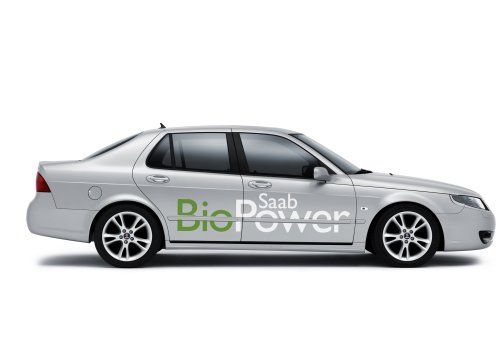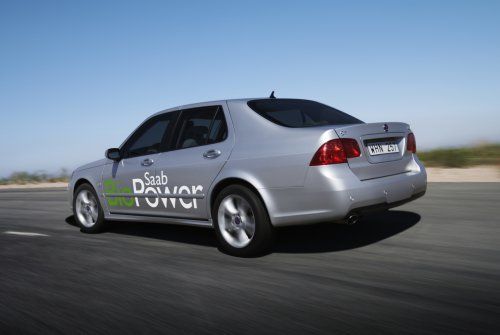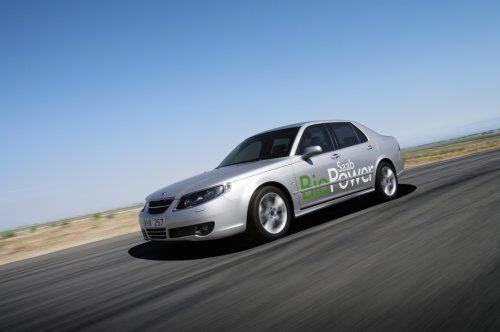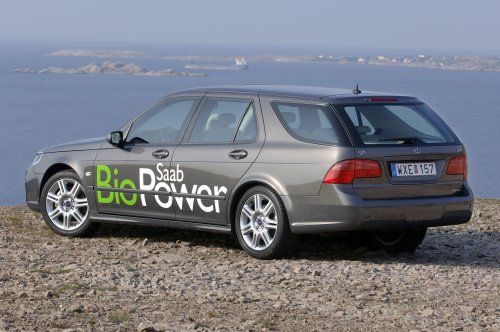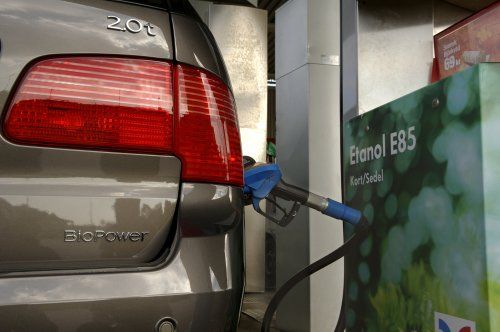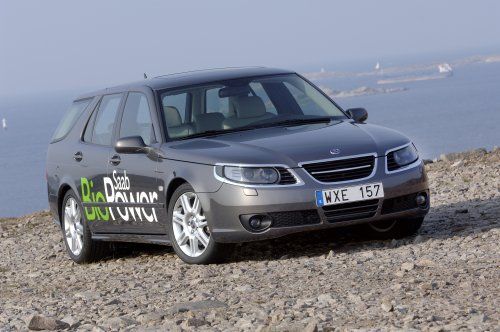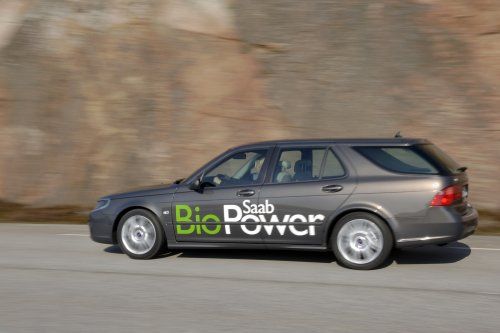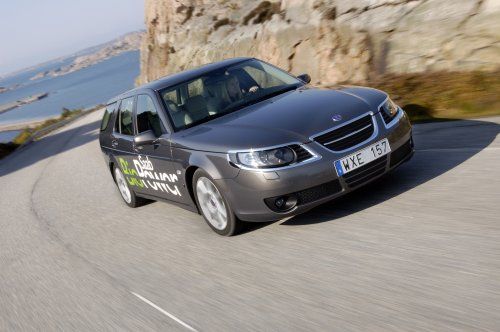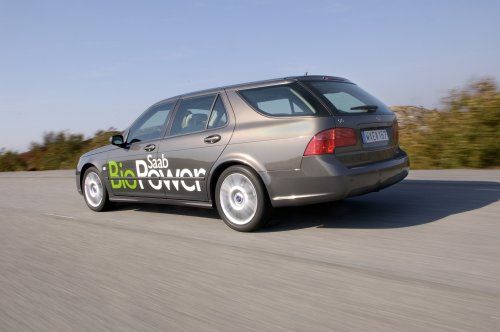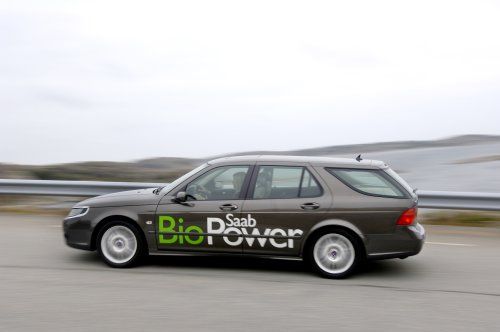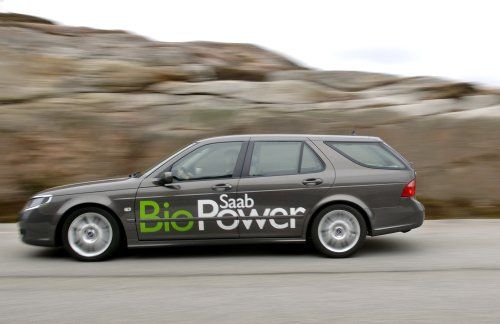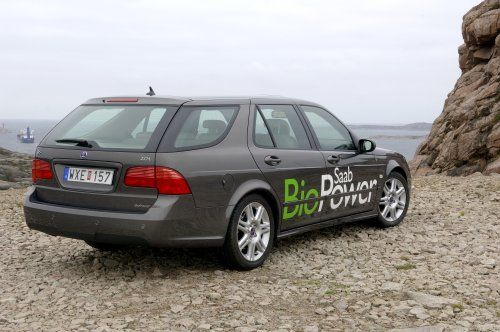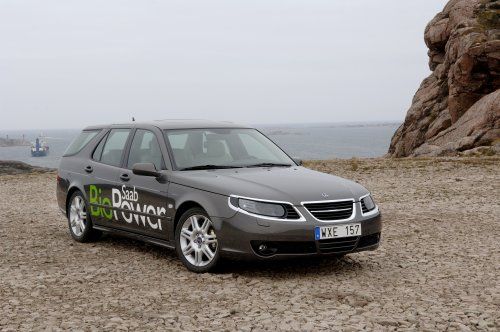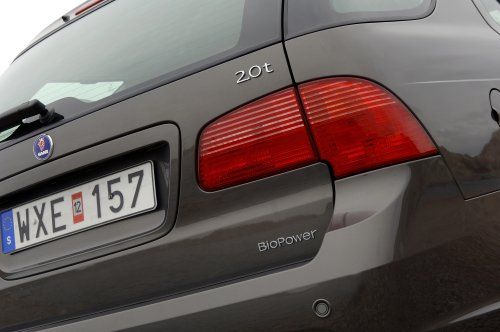Saab leads the premium segment in offering a model fuelled by bioethanol, an eco-friendly renewable energy source. The Saab 9-5 2.0t BioPower is not only kinder to the environment, it also produces more power and performance than its gasoline equivalent.
saab-9-5-biopower
- Make: Array
- Model: saab-9-5-biopower
2007 Saab 9-5 BioPower
- Engine/Motor: 2.0L I4
- Horsepower: 180@5500
- Torque: 280@4000
- [do not use] Vehicle Model: Array
It is already an outstanding success in Sweden, where BioPower models account for about 70% of all 9-5 sales, with more than 5.500 cars ordered since its launch last July.
The enjoyment of sporty performance is combined with a very practical solution to the environmental needs of customers because it can run, without adjustments from the driver, on bioethanol – based fuel or gasoline in any proportions.
Bioethanol fuel is produced commercially from agricultural crops, such as corn and sugar cane. Unlike gasoline, its consumption does not raise atmospheric levels of carbon dioxide (CO2), the “greenhouse” gas that contributes to global warming. This is because emissions during driving are balanced by the amount of CO2 that is removed from the atmosphere when crops for conversion are grown. It is currently blended 85% bioethanol/15% gasoline and sold on Sweden as E85 fuel.
Running on E85, the Saab 9-5 2.0t BioPower engine delivers 180 bhp and 280 Nm of torque, compared to 150 bhp and 240 Nm when using gasoline, a significant 20% increase in maximum power and 16% more torque, that gives even sportier performance. In the 9-5 Sedan, 0 to 100 kph dash can be accomplished in 8.5 seconds and 80-120 kph in fifth gear in 12.6 seconds compared to 9.8 and 14.9 seconds when running only on gasoline.
Tests in Sweden, where the pump price of E85 is 25% less than gasoline, show that fuel costs in urban and mixed driving are broadly similar, although fuel consumption over the city cycle is about 30% higher.
The adaptability of Saab’s powerful Trionic engine management system has facilitated reprogramming to accommodate the different ignition timing and fuel/air mixture requirements of E85 fuel. Trionic monitors fuel quality after every visit to the filling station and automatically makes any adjustments necessary for running on E85 and/or gasoline in any combination. That means Saab BioPower drivers can also use gasoline.
E85 has a much higher octane rating (104 RON) than gasoline (95 RON), and turbocharging allows the use of a higher compression ratio - giving more engine power - and more advanced ignition timing than is possible with gasoline without risk of harmful “knocking” or pre-detonation. The only hardware modifications necessary are more durable valves and valve seats, and the use of bioethanol – compatible materials in the fuel system, including the tank, pump, lines and connectors.
During the designing of the BioPower engine, Saab Powertrain engineers liaised with their General Motors colleagues in Brazil where 100% bioethanol (E100), produced locally from sugar cane, is the dominant fuel on the market.
The engine management system automatically adjusts for the blend of fuel so, if there is no bioethanol available, the customer can simply run on gasoline at any time. Turbocharged engines are particularly well-suited to exploiting the benefits of bioethanol.
Saab 9-5 BioPower models are now available with manual or automatic transmission in both Sedan and SportCombi bodystyles. As a next step in the current program, Saab is planning to introduce more BioPower models to its product range later this year. A 400 bhp BioPower 2BV6 turbo engine, running on E100 fuel, is also shown in the Saab Aero X concept car.
Pan-European Initiative
The EU is committed to cutting greenhouse gas emissions, including the encouragement of a greater use of bio-fuels for road transport. And in the EU – backed BEST (BioEthanol for Sustainable Transport) initiative, Saab 9-5 BioPower models are to participate in demonstrations this year in six EU countries: Holland, UK, Italy, Ireland, Spain and Sweden, as well as China and Brazil. Public authorities and large company fleet operators will have the opportunity to test and evaluate the on-road performance of bioethanol powered vehicles.
An EU directive on energy taxation currently requires member states to apply reduced taxation or a complete exemption, for bio-fuels in pure or low blends. The process is already underway in Sweden. In addition to benefitting from E85 fuel that is 25% cheaper than gasoline, Saab 9-5 BioPower customers are also exempted from city congestion and parking charges, as well as qualifying for a 20% reduction in benefit tax if they are company car drivers.

